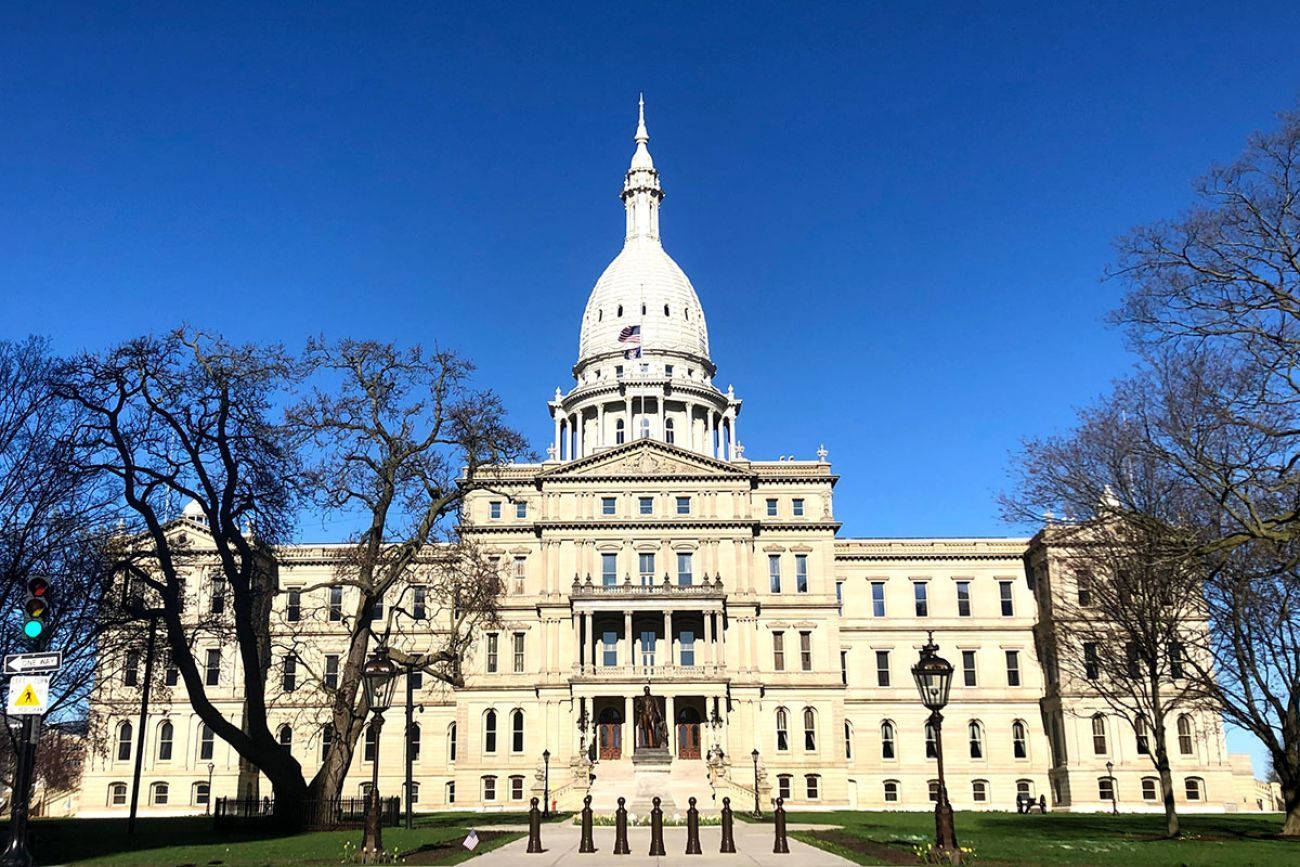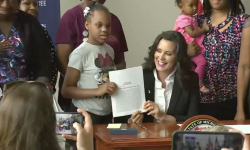At odds over education, Michigan lawmakers near deal on $80B budget

- Democratic-majority Michigan Legislature preps Wednesday budget votes before summer recess
- Officials predict a long day as lawmakers work through the details
- Other policy issues could come up, including proposed film credits and tax breaks for data centers
LANSING — As the Michigan Legislature’s summer break looms, lawmakers are preparing for a marathon session Wednesday to try and finalize the state budget and resolve various policy debates.
Though scant specifics were available Tuesday, officials said the House and Senate have reached a tentative consensus on both the state education and general fund budgets expected at roughly $80 billion combined.
Conference committees — panels featuring both House and Senate lawmakers — are scheduled to meet Wednesday morning to go over the details, though officials acknowledged it could take hours to work through the specifics and get to floor votes.
“We do plan to vote on the budget,” said Amber McCann, spokesman for House Speaker Joe Tate, D-Detroit.
Related:
- The $670 million question blocking a Michigan budget deal
- Data centers create few jobs. Michigan wants to give them big tax breaks
Michigan’s next budget is due before the new fiscal year begins Oct. 1, although lawmakers in recent years have approved it far sooner at the behest of schools and local governments, which typically set budgets in the summer.
Lawmakers are running out of time to hit that goal. Both chambers are currently scheduled to suspend session for the bulk of July and August, and upcoming House elections mean many will be busy raising funds and campaigning in their districts during the summer months.
Much of the debate thus far has centered around the state’s education budget, where the Democratic-majority Legislature has been at odds over who should benefit from $670 million in teacher retirement fund contributions they contend are no longer necessary.
New data showing teacher retirement health care obligations are now fully funded — at least on paper — brought with it diverging ideas among Democrats on what to do with the cash.
Gov. Gretchen Whitmer has proposed using the money that was previously going to state payment obligations to fund other education initiatives, including free, universal preschool.
Legislative Democrats and school groups favor a different route, advocating for diverting the funds back to school districts and public school employees.
The Senate approved a proposed policy change last week to lower repayment requirements for the state’s legacy educator pension system long term.
On Tuesday, the House passed a different version of the plan — a vote that effectively punted the discussion about a more permanent change to the retirement system to the fall.
Rep. Matt Koleszar, a Plymouth Democrat and the lead House sponsor, told reporters Tuesday that he expects the two chambers will eventually resolve their differences on the policy. In the meantime, he said he was “optimistic” lawmakers could reach a budget deal this week.
Republicans, meanwhile, have characterized the education proposals as a “raid” on retirement benefits the state has worked hard to fund, arguing the health care payments should be redirected toward covering the rest of the state’s pension obligations.
While the portion dedicated to health care is fully funded, broader future pension costs remained roughly $29.9 billion underfunded as of May.
“This is the first year where we're seeing this difference, and all of the sudden there's a rush to change it,” said Rep. Ann Bollin, R-Brighton Township, calling Democrats’ proposals “premature.”
In addition to state budget bills, lawmakers have also left open the possibility of passing other policy priorities, including a proposal to create new incentives for filmmakers and tax breaks for data centers.
Both plans were initially scheduled for votes Tuesday, but were passed over amid ongoing concerns from school and environmental groups, respectively.
See what new members are saying about why they donated to Bridge Michigan:
- “In order for this information to be accurate and unbiased it must be underwritten by its readers, not by special interests.” - Larry S.
- “Not many other media sources report on the topics Bridge does.” - Susan B.
- “Your journalism is outstanding and rare these days.” - Mark S.
If you want to ensure the future of nonpartisan, nonprofit Michigan journalism, please become a member today. You, too, will be asked why you donated and maybe we'll feature your quote next time!




